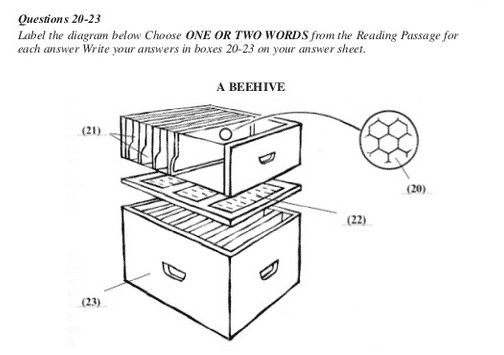
反义疑问句是初中阶段的一个重点和难点,突破它并不难,只要大家能从以下几个方面着手,我想定会让你豁然开朗:
反义疑问句(Disjunctive Questions )的定义:
反义疑问句又叫附加疑问句(tag question)在陈述句之后,附加上一个简短句,对陈述句所叙述的事情提出的事情提出相反的疑问,这种疑问句叫反义疑问句。换句话说,反义疑问句由两部分组成,前一部分是对是对事物的陈述,后一部分是针对所提出是事提出疑问。如果前一部分用肯定式,后一部分就用否定式;如果前一部分用否定式,后一部分就用肯定式。
反义疑问句陈述部分用降调,简短问句部分可以用升调,也可以用降调,这得由提问者决定。提问者对陈述部分把握较大时,问句用降调;把握不大时用升调。
反义疑问句前后两部分所遵循的规则:
1. 前后语气相反。
A.前一部分用肯定式,后一部分就用否定式。
(1.)You are a student,aren’t you ?
(2.)She reads Chinese every day,doesn’t she?
(3.)John went to school, didn’t he?
(4.)She has done his homework,hasn’t he?
(5.)They can speak English, can’t they?
(6.)You will come in, won’t you?
B.前一部分用否定式,后一部分就用肯定式。
(1.)He isn’t a singer,is he?
(2.)They don’t play the guitar,do they?
(3.)You couldn’t write it, could you?
(4.)We did n’t see Tom, did we?
(5.)She hasn’t seen Lily, has she?
(6.)he can’t ride the bike,can he?
2.前后人称一致。
(1).We are teachers ,aren’t we?
(2.)She comes from Japan,doesn’t she?
(3.)He read maths every day last year,didn’t she?
(4.) They have done their work, haven’t they?
(5.)It will be fine, won’t it?
3.前后时态一致。
(1.)You are a teacher ,aren’t you?
(2.)He comes from Japan,doesn’t he?
(3.)She studied Chinese last year,didn’t she?
(4.) They have learned English, haven’t they?
(5.)It will rain , won’t it?
4.简短问句部分要用缩写形式。
(1.)You are a student,aren’t you ?
(2.)She reads Chinese every day,doesn’t she?
(3.)John went to scholl, didn’t he?
(4.)She has done his homework,hasn’t he?
(5.)They can speak English, can’t they?
(6.)You will come in, won’t you?
5.简短问句部分的主语要用人称代词主格。
(1.)This book is yours,isn’t it?
(2.)Tom dosen’t know me, does he?
(3.)Lucy and Lily played the piano,didn’t they?
(4.)Kate’s dog has eaten 3 chichens,hasn’t it?
(5.)His desk and bike are red,aren’t they?
(6.)His milk isn’t bad, is it?
反义疑问句中的特例
(1.) There be 变成be There:
There are 3 dogs ,are there?
(2.)I am a worker,aren’t an’t I?
(3.)陈述部分是祈使句时,从句应具体情况具体对待。
Don’t forget it will you? (不用Won’t you? )
Come here early please,willwon’t you?
Let’s go to the beach, shallshan’t we?
Let us go to the beach, willwon’t you?
(4.)陈述部分谓语是think,suppose,believe,expect等,且主语为第一人称或第二人称时,简略句肯定或否定语气与主句对应,而主语和时态却与从句一致。
I don’t think you are right,are you?
I don’t believe he has done it,has he?
(5.) 当陈述部分的主语为代词-body,-one构成的不定代词时,简略句的主语多用they; 当陈述部分的主语为-ing构成的不定代词时,简略句的主语多用it.
Everyone is here,aren’t they?
Playing football in the street is right, isn’t it?
(6.)当陈述部分的主语为代词: this,that,nonthing,不定式,动名词或从句时,简略句的主语用it,陈述部分的主语为these,those,nobody,eveybody,somebody等,简略句的主语用they。
That is a dog,isn’t it?
These are apples, aren’t they?
Nothing is right, is it?
To see is tobelieve, isn’it?
Everyone comes here ,don’t they?
Nobody can help us,can they?
Everything is ready,isn’t it?
-
相关文章
- 找前男友的父母谈谈 可以挽回吗
- 基本面分析与技术面分析结合选股
- 有关犯罪电影推荐(谈谈你最喜欢的一部犯罪电影)
- 推荐一部好看的电影并说明推荐理由(谈谈最喜欢的电影与理由)
- 谈谈对公益众筹的认识
- 谈谈对文件检验的认识
- 谈谈To B业务的创业机会
- 谈谈我国开放式基金的投资风格
- 投资理财市场经常听到技术分析,请谈谈技术分析的三大假设真正含
- 林雨欣来谈谈男人为什么喜欢女人的胸
德迅网 » 谈谈英语反义疑问句中的异类
免责声明:本文由网友提供互联网分享,不代表本网的观点和立场;如有侵权请联系删除。

 英文信件结尾处署名写在左边还是右边
英文信件结尾处署名写在左边还是右边 小学达到英语专四只能算“标配”?谁在助推
小学达到英语专四只能算“标配”?谁在助推 英语句子的连词(英语三个句子并列用什么连
英语句子的连词(英语三个句子并列用什么连 雅思阅读到底考你什么?
雅思阅读到底考你什么? 雅思阅读不同题型答题技巧
雅思阅读不同题型答题技巧